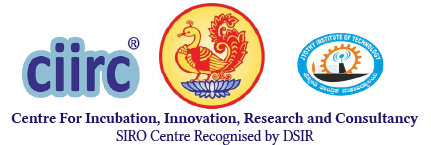Overview
Water pollution has become a monumental problem which needs immediate attention and remedial action today. Indeed the supply of clean and safe water has been a challenge; contamination of water because of hazardous heavy metal ions, pathogens and dyes has made things even worse. All of these contaminants are potent environment and health degrading elements.
Water treatment by means of technologies such as membrane separation, ion-exchange, reverse osmosis, oxidation, photocatalysis and adsorption is currently in practice. Among the existing systems of water treatment, adsorption is proposed to be the most viable approach for water treatment owing to its ease of operation, high efficacy, economical and eco-friendliness. Innumerous solid sorbents have been explored for treating heavy metals, dyes, pesticides and pathogens present in polluted water. Activated carbon made from various resources has been the primary material used for sorption of contaminants. Even though activated carbon is recognized as a universal adsorbent for treating wastewater, there are several limitations like high cost and high energy consumption. Hence, it is necessary to develop other low-cost and sustainable adsorbents.
Provision for the supply of safe drinking water in rural India, with about 1.42 million habitations and millions of water sources, is an amazing task. Due to the logistical problems and inadequate water quality testing infrastructure, generation of reliable water quality data on regular basis has been an acknowledged problem. Monitoring and surveillance of water quality on regular basis, has the objective of protecting the water sources to the greatest extent possible. When contamination occurs, effective quality testing provides early warning, which permits interventions aimed at reducing/ or eliminating undesirable constituent to the acceptable level.
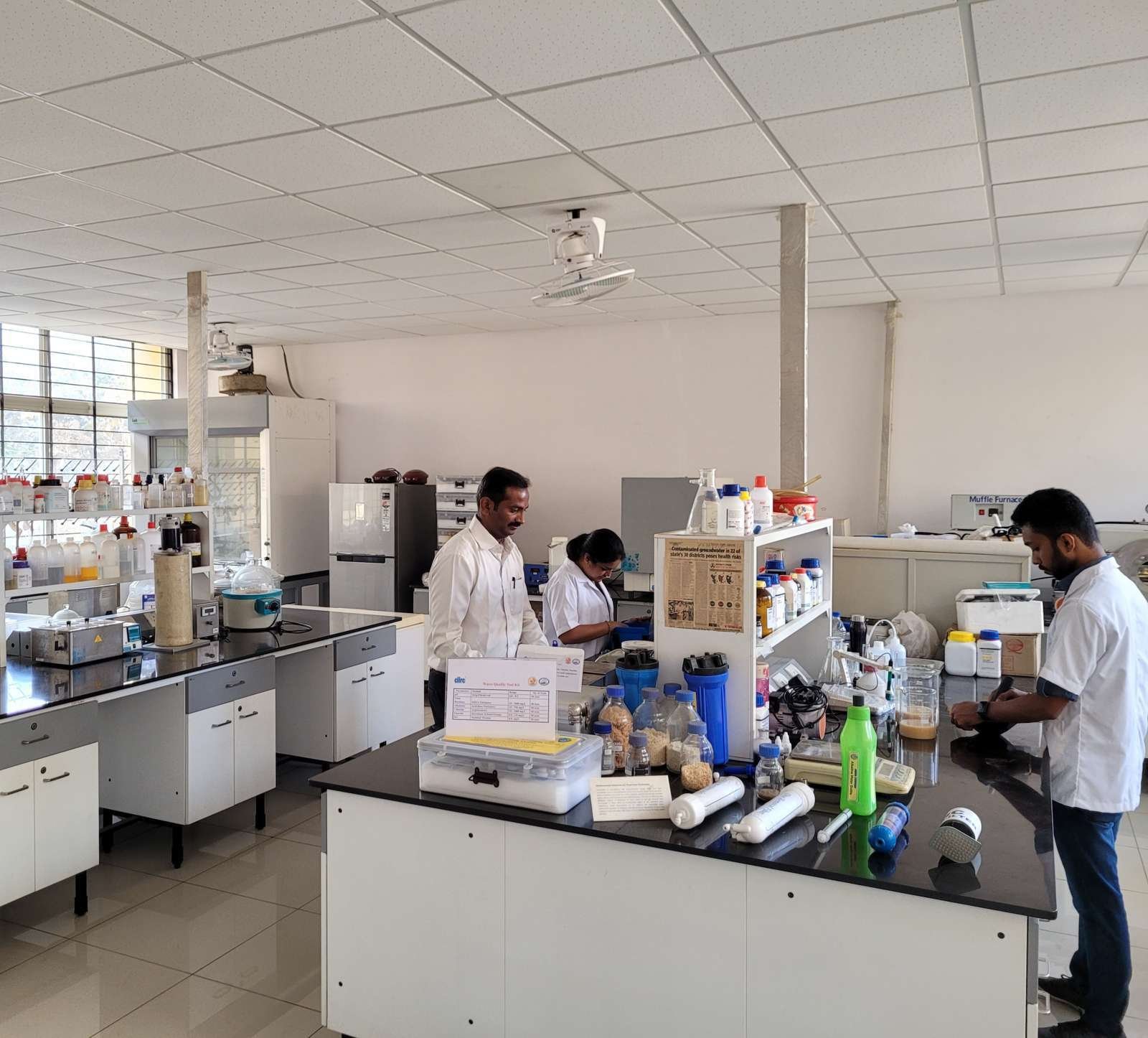
In order to overcome these issues, research is addressed towards Development of;
1 Water quality test kits: The group has developed a cost effective and user friendly water quality analysis kit, for the estimation of physical, chemical and bacteriological parameters addressing the different segments of water usage such as; i. Domestic water, ii. Construction water iii. Cooling water , iv. Boiler water, v. Aquaculture

2 Portable Personal Water filter straw and bottle: These products are useful for outdoor, first aid kit, camping, hiking, backpacking, survival, emergency etc. They are capable of removing bacteria and other contaminates from the water.

3 Shower filters:The chloride content in the water causes rashes of skin, hair fall, pigmentation and other skin related problems, which can be addressed by using the patented shower water filter. The main reason for the hair fall is the hardness of the water. The displayed shower filter helps to reduce water hardness. The filter comes with an universal fit design, suitable for all existing plumbing and comes with replaceable filter cartridge which is easy to install.
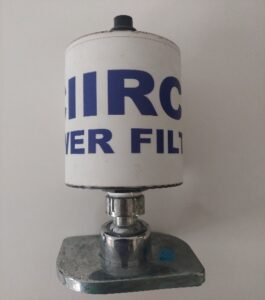
4 Ultra-small water filters: These are instant personal filters, good looking and easy to carry, Purifies the water up to 300 L, 99.99% of water borne bacteria and objectionable odor removed. Easy to fit all PET bottles.They are also portable, economical, can be used anywhere, reduces the turbidity and suspended micro particles. Currently a commercially available outer case is being used for testing purposes.

5 Adsorbents: Work is in progress to develop low-cost and high surface area carbon based or oxides nano adsorbents for the removal of toxic heavy metal ions, dyes and organic pollutants. The same is being modified to obtain the structure of adsorbents in such a way they are capable of removing all kinds pollutants and pathogens simultaneously from the water.

- Muralidhara et al., Microwave treated Bermuda grass as a novel photocatalyst for the treatment of methylene blue dye from wastewater, Environmental Nanotechnology, Monitoring & Management, 15 (2021) 100447, IF 5.647.
- Muralidhara et al., Comparison of the photocatalytic, adsorption and electrochemical methods for the removal of cationic dyes from aqueous solutions, Environmental Technology & Innovation 17 (2020) 100612, IF 5.263.
- Muralidhara et al., Multipurpose composite for heavy metal sorption, antimicrobial, and antioxidant applications, International Journal of Environmental Science and Technology, 16 (2019) 2017–2030, IF 2.860.
- H B Muralidhara et al., Open ended tube like hollow bio-carbon derived from banana fibre for removal of anionic and cationic dyes, Desalination and water treatment, 132 (2018) 298–306, IF 1.15.
- B. Muralidhara et al., Nanotechnology Scope in Wastewater Treatment: Special Case of Dairy Effluents, CRC Press, Taylor and Francis Group. Pages 259-273 Hard ISBN:9781771887656 (2019).
- B. Muralidhara et al., 3D printing Technology for Environmental applications, CRC Press Taylor and Francis Group, Published on 2021/12/22, Pages 81-95. Hard ISBN: 978-1-77188-978-0.
- Electrochemical work station (CH Instruments, USA)
- Water bath
- Ultrasonic bath
- Muffle Furnace
- Vacuum oven
- Water distillation unit
- Hot air oven
- Deep freezer
- Fischer Centrifugation unit.
Development of low-cost nanomaterials, methods or systems for water purification applications-SSPT.
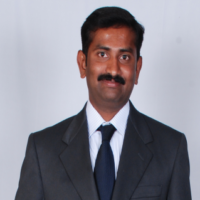
Muralidhara
Muralidhara completed his Master’s and Ph.D. from Kuvempu University, Karnataka and joined IISc, Bengaluru as a Post-doctoral fellow in the year 2008. Subsequently he got into the academic domain and worked as Head-R&D Chemistry at KSIT, VTU and Center for Emerging Technologies, Bengaluru. Muralidhara’s main research domain includes electrochemistry and water purification. Research on Electrochemistry involves the development of low-cost Iron based flow batteries for renewable storage, electroactive materials for electrocatalysis, electrodeposition on metals/alloys or 3D plastics and electrochemical treatment of wastewater. Research on water purification includes design and characterization of hierarchical nanostructures for removal of heavy metal ions and dyes from contaminated water. He has already completed projects funded by VTU and DOS and currently has ongoing projects from DST.
Muralidhara has authored about sixty research articles and three books and book chapetrs. He has supervised five Ph.Ds, and more than thirty students at the Master’s level. Apart from basic and applied research he is also associated with projects having societal relevance and industrial/consultancy projects in the area of environment and electrochemistry. Muralidhara is the recipient of “MRSI Medal” by Materials Research Society of India. Recently his project on ‘iron based redox flow batteries’ funded by DST has been listed as successful project as per the compendium released by DST in its website. He is a life member for several bodies and reviewer for reputed publishers like Elsevier, Springer and Taylor and Francis. Also he is the recipient of best oral award in conferences, top cited articles award and best reviewer award from Elsevier. He has delivered many invited/plenary lectures and is currently working as an Associate Professor.
Email : muralidhara.hb@ciirc.jyothyit.ac.in
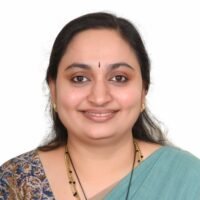
Uma Ullas
Uma Ullas is an active researcher in the field of Nano sensors and materials, with special interest in biomedical devices and IoT based sensors for water quality monitoring and graduated with a doctorate from the University of Mysore. In addition to being an Associate Professor at the centre, She also happens to be a courtesy Associate Professor at Department of Electrical and Computer Engineering at Florida International University, Miami, FL, USA. She has also taught courses at both the undergraduate and postgraduate levels Electronic Science and Nanoscience students at the prestigious MCC, Bangalore, India for nearly twenty years. Currently, she is working on fabrication of Nano sensors and wearable medical devices like electromyogram, which finds applications in diagnosis of neuromuscular disorders and sports; and Nano material conducting ink for printable electronics. Uma is actively engaged with industry as consultant for Nano sensors, and is onboard with GEMN Research & Development, a startup in biomedical devices space. She is also a co-investigator of a UGC sponsored Indo-US collaborative project on soil condition testing and monitoring. Uma has the distinction of publishing numerous papers in several international and national journals, and has been a member of Board of Studies and Board of Examiners of various institutions. She has also authored a book on Electronics for students pursuing Bachelor’s degree at Bangalore University, Bangalore, India.
Email Id: umaullas@jyothyit.org
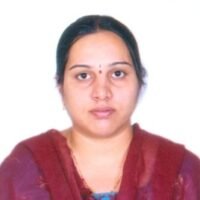
Swetha Seshagiri
Swetha Seshagiri has a Masters degree in Microbiology from Government Science College, Bangalore during 2006-08 and Doctoral degree for her thesis entitled “Interactions of Piriformospora indica with Solanum melongena L.” She has eight years of research experience having worked as Researcher at the Centre for Emerging Technologies, Jain University. Swetha has worked on inactivation of water borne pathogens using nanoparticles (water disinfection) and also on antimicrobial activity of newly formulated Ayurvedic drugs. She has filed three patents, alongside twenty five publications in peer reviewed international journals and attended several national and international conferences. She has attended several entrepreneur development programmes. She has also successfully worked on projects of VTU, DST and DRDO during her research career and currently has a Early Career grant from DST. Additionally Swetha is also a certified Coffee barista and taster and works as an Assistant Professor.
Email Id: swetha.s@ciirc.jyothyit.ac.in
